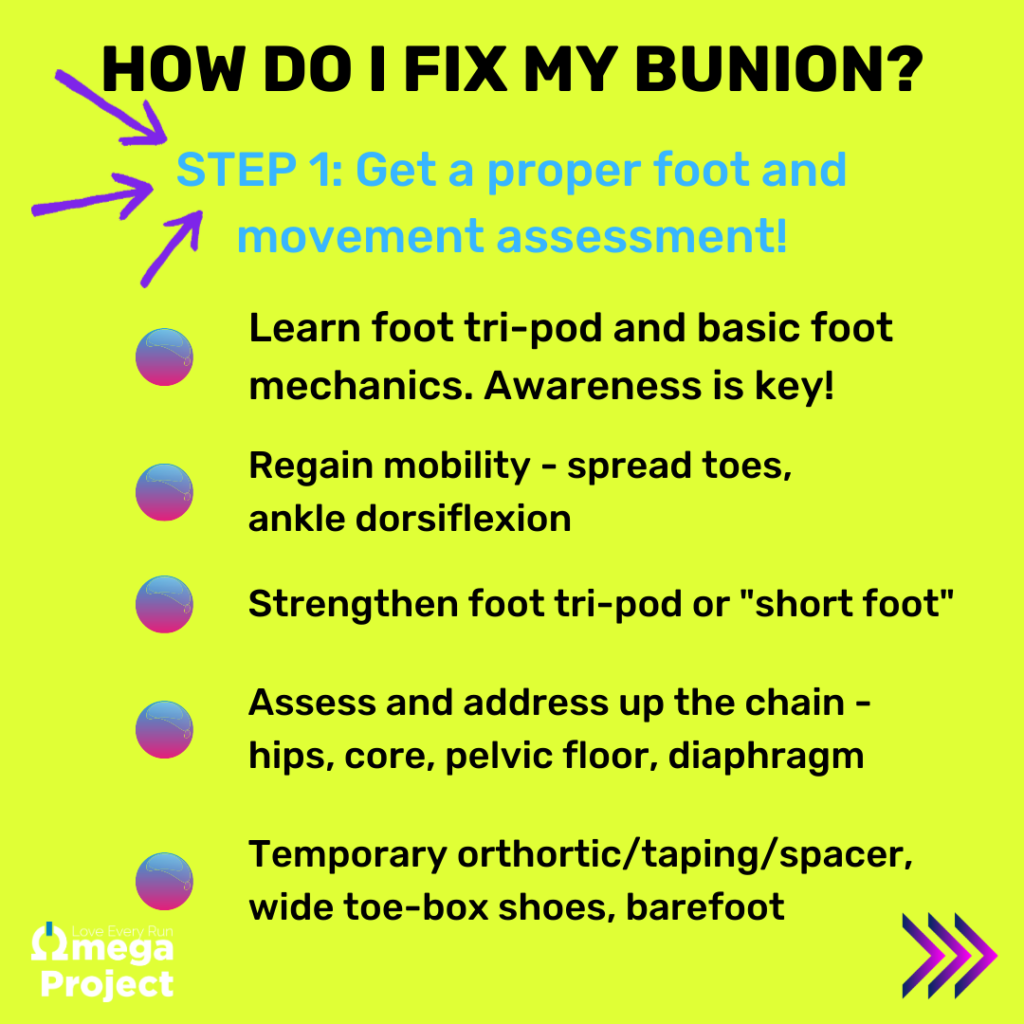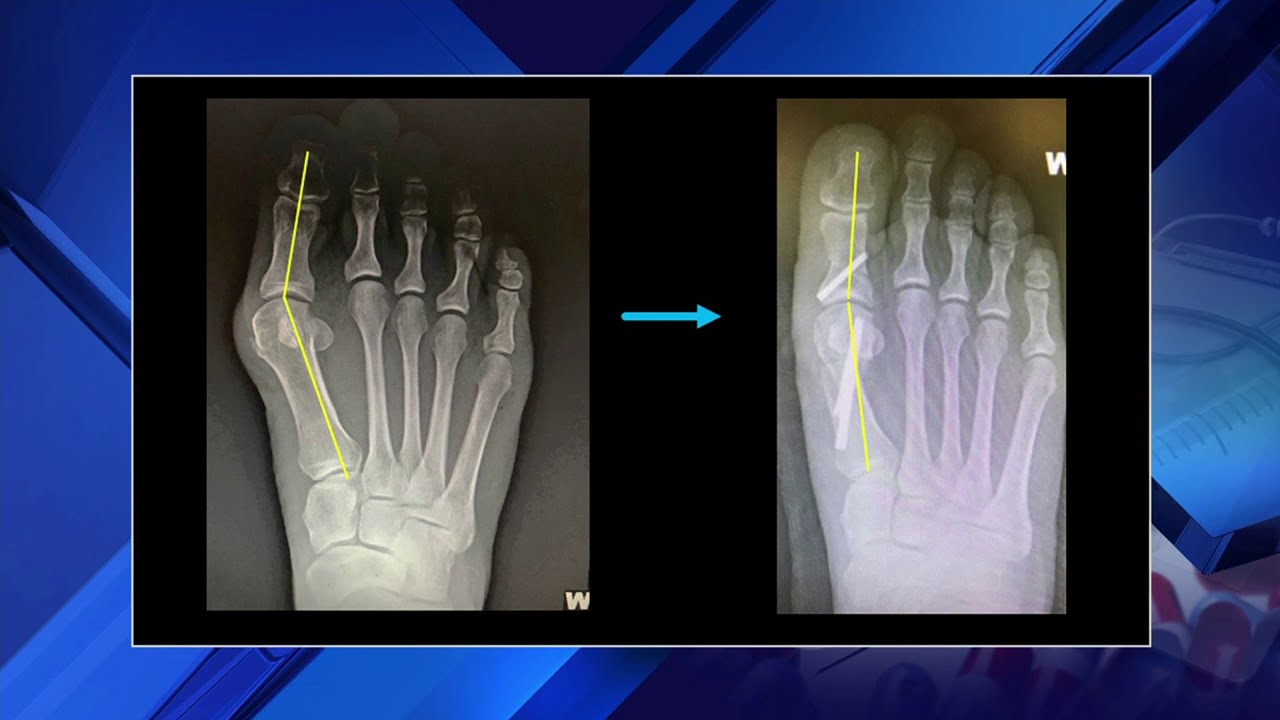We’ll start by saying this loud and clear so the back of the room can hear…
FIRST STEP, get a professional who can do a movement and foot assessment to look at what’s going on. This should be someone who not only looks at your foot function but also looks at everything from ankle mobility, to core strength, to diaphragm function. They should also be knowledgeable in gait assessment (running and walking) and shoe function. It’s important to find the root cause.
The second thing that’s important to mention is that, as much as we here at Omega Project want to fix everything, there does come a time when a bunion has progressed too far to fix conservatively. There are some who would say don’t do anything drastic (surgery) until the pain becomes unbearable. However, there is also the argument that the unstable first ray now limits your ability to produce a powerful and stable push-off. This can affect running performance and injury risk. You’ll likely want to see a physician and a physical therapist who can assess your situation from a structural and functional standpoint and help you come to the best solution on a case-by-case basis.
Surgery typically involves an osteotomy of the 1st ray to improve the alignment of the 1st metatarsal and great toe. However, the surgery can also be more complex and involve stabilizing the midfoot. We won’t get into that today but here’s an example of a typical surgical x-ray.
Ok, so if you are starting to notice a bunion, there are several things you can do to address the issue. They do take some practice and diligence but, from personal experience, it’s worth it to have healthy feet.
Read the graphic here and then see the videos for some ideas on exercises to start with!

Here are some exercise ideas. And here I’m going to say this again, please have someone assess you individually. These exercises are not for everyone with bunions!
Learn the foot tri-pod and foot mechanics.
Increase mobility in the foot and intrinsic muscles.
Work on great toe alignment.
Increase ankle mobility.
Add strength!

